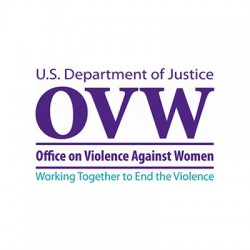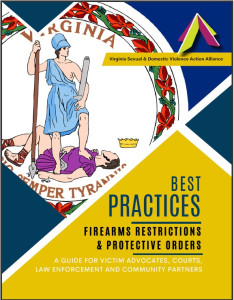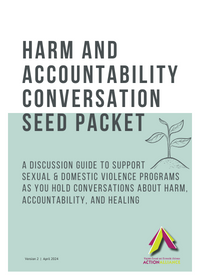Resources Library: Model Policies & Best Practices
Start a Search:
FACT Issue Brief—Older Adults and Family Violence
This FACT Issue Brief identifies forms of family violence and abuse faced by older adults and summarizes research on effective ways communities and households can identify and prevent further abuse. Promising strategies designed to protect the safety and security of the older adult population within the Commonwealth of Virginia are highlighted.
FAQ on the VAWA Confidentiality Provision

If you've ever been confused about the difference between VAWA, FVPSA, VOCA, and HIPAA on issues of privacy and confidentiality for survivors of intimate partner and sexual violence, rest assured, you are not alone. Navigating these different standards can be very confusing when it comes to service provisions, survivor privacy, and data confidentialty.
This document produced by the U.S. Department of Justice's Office on Violence Against Women has produced a very helpful FAQ document that addresses many of the questions that arrise in SDVAs when it comes to how to protect surivior's privacy based on VAWA requiements. There are answers to question about verbal consent, what to do if law enforcement visit shelters, how grantees should handle grant monitoring inquiries, and considerations for using cloud servers for data storage. Check it out by downloading it below.
Firearms Restrictions and Protective Orders in Virginia

Recent changes in Virginia code pertaining to firearms, firearm restrictions, surrender of firearms, and new Substantial Risk Orders can substantially impact the lives and safety of survivors of intimate partner violence. To assist survivors in making decisions regarding petitioning for protective orders and with safety planning, it is essential that advocates are knowledgeable about both the legal remedies as they pertain to firearms and the processes and procedures in their communities for implementation of these new remedies.
The Virginia Domestic Violence and Firearms Workgroup worked with local, state, and national partners to create new resources to support implementation of firearms restrictions in communities across Virginia. The toolkit is intended to serve as a foundational resource for sexual and domestic violence advocates – in their work with survivors and communities – to maximize safety and to ensure compliance with Virginia law.
For more information on how to best use these tools and/or for technical assistance and training to support implementation in your community, please contact the Virginia Sexual & Domestic Violence Action Alliance at training@vsdvalliance.org.
To download this resource, click here.
Harm and Accountability Conversation Seed Packet: A Discussion Guide to Support Sexual & Domestic Violence Programs as You Hold Conversations About Harm, Accountability, and Healing

The Harm and Accountability Conversation Seed Packet is a guide to help people working in sexual and domestic violence programs begin to think more broadly about what accountability can and should look like, not only after harm is committed, but also in all aspects of their lives: our relationships, families, workplaces, and communities.
The 95-page document includes 17 exercises and concrete steps for folks working in sexual and domestic violence agencies who want to expand their knowledge and practice of effective accountability.
Examples of activities in the discussion guide include:
• Responding to harm caused by individuals vs. systems
• How shame can block accountability
• What is the “victim/perpetrator binary” and how does it impede our work?
• Accountability and punishment Venn diagram
• What are the obstacles to accountability and how to overcome them?
• How to give a genuine apology
• Healing and accountability wheel
The discussion guide is designed to be a toolkit for holding conversations in your workplace, communities, and families. It was written to spark discussions about what paths exist for promoting accountability and how we can practice it in our own lives to model it for our friends, families, coworkers, and communities.
The guide asks us to consider what systems for supporting accountability currently exist, and to imagine new ways of approaching our responses to harm…approaches that not only reinforce accountability but also strengthen connection and healing.
High Risk Screening for Women of Childbearing Age
This handout was provided by Martha Kurgans, from the Department of Behavioral Health and Developmental Services, at the workshop titled "How Community Service Boards and Domestic Violence Programs Can Help Each Other" at the Virginia Department of Social Services Office of Family Violence Promising Practices conference on September 16, 2013.

